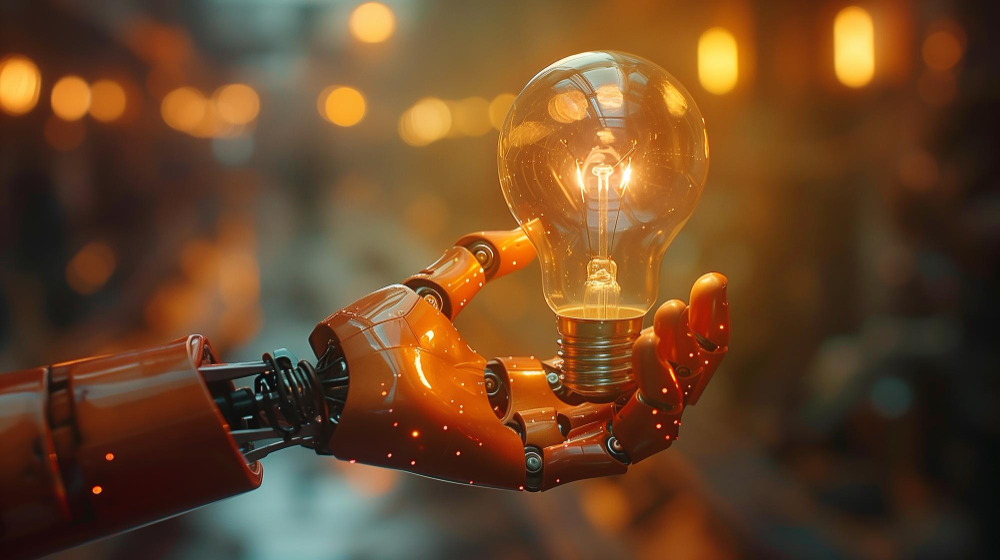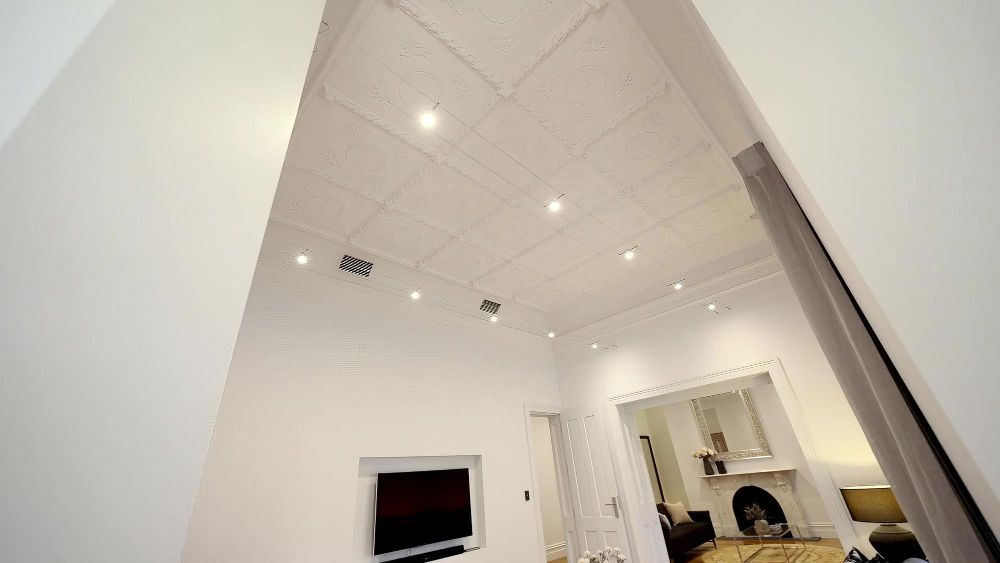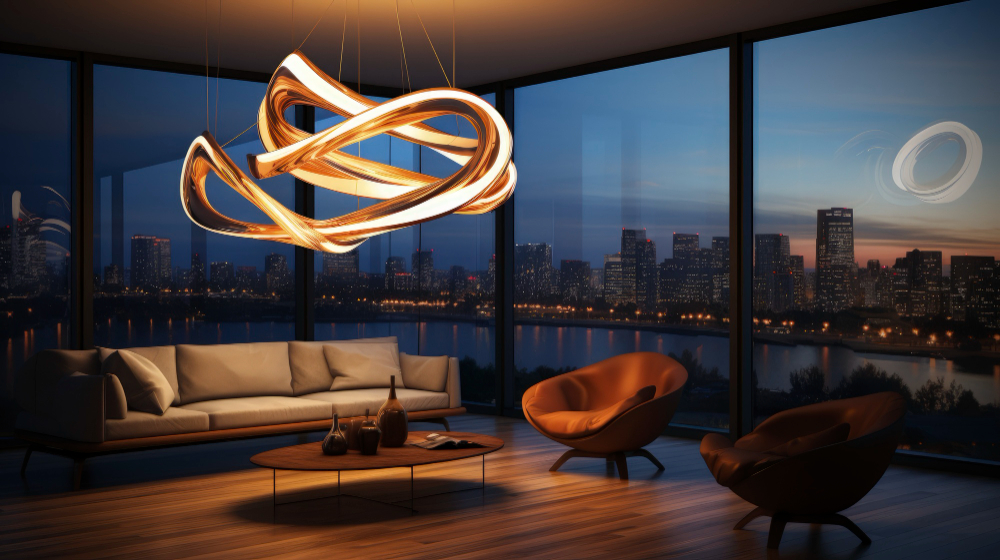Commencing the AI Technology Era: Integrating Lighting Industry

Artificial Intelligence is having a significant impact on our lives in a variety of ways, changing the way we work, communicate, and use technology. From tailored suggestions on streaming services to sophisticated medical tests and self-driving cars, AI is causing a transformative shift in various sectors, including the lighting industry, revolutionizing conventional experiences, by incorporating AI technology into LED lights and producing LED lights with AI integration. Artificial intelligence (AI) is completely changing the lighting market by dynamically altering lighting levels, color temperature, and distribution based on variables like occupancy and natural light levels, these lights maximize energy consumption. They provide intelligent features that adjust to shifting user preferences and environmental situations, like occupancy monitoring, predictive maintenance, and customized lighting scenarios. Artificial intelligence (AI)-connected LED lighting promotes human-centric lighting principles by improving mood and cognitive function and adjusting illumination in accordance with circadian rhythms. In order to optimize lighting design and management, they evaluate data from sensors and human interactions. This results in insightful analyses that improve efficiency and user experience. By encouraging creativity and personalization, this integration improves lighting design’s visual appeal and practicality. Additionally, LED lights with AI integration promote sustainability.
INNOVATIONS IN THE INDUSTRY
Artificial intelligence (AI) and smart home technologies are contributing to substantial progress in the field of smart lighting technology. A number of businesses are leading this revolution
Studio Roosegaarde’s:
Crystal” installation has hundreds of LED crystals that respond to human touch, resulting in an interactive experience where the audience becomes part of the art
Ars Electronica Futurelab’s “Spaxels”:
performance uses LED-equipped drones controlled by complex algorithms to create 3D light paintings in the sky, demonstrating a unique connection between technology and art
Helvar’s ActiveAhead solution:
Helvar’s ActiveAhead solution technology uses AI to automate light commissioning, saving setup time and optimizing light settings for user experience and well-being
Philips Hue Smart Lighting System:
This system uses AI to adapt lighting based on user preferences, schedules, and even sync with music or movies to provide an improved experience.
Radar and Lidar sensors:
Provide creative lighting applications that integrate smoothly into our daily lives, such as real-time parking data for mobile apps or tailored lighting and temperature management in buildings.

How AI Integration Is Helping in Enhancing Functionality, Efficiency and User Experience in Lighting Systems
AI integration improves user experience, efficiency, and usefulness in lighting systems in a number of ways.Energy conservation can be greatly enhanced by AI-driven lighting management systems, which can optimize energy use by altering brightness, color temperature, and even turning off lights in unoccupied areas Another important advantage is personalization, where AI uses machine learning to adjust lighting situations to each person’s tastes and improve comfort and wellbeing. Another benefit is predictive maintenance, where AI examines performance data to spot patterns that point to possible problems, reducing downtime and disturbances to the lighting environment.AI-powered lighting management systems may also produce dynamic scenes based on a variety of factors, including user preferences, the space’s intended use, or certain events, giving lighting design a more creative element.

HOW ARTIFICIAL INTELLIGENCE IS REVOLUTIONIZING THE LIGHTING INDUSTRY
Artificial intelligence (AI) is bringing revolutionary advances to lighting control, design, and user experience that are completely changing the lighting sector. Key ways AI is changing the lighting industry are as follows:
-
Increased Productivity:
Artificial intelligence (AI)-powered lighting systems maximize energy use by modifying occupancy-based controls, color temperature, and brightness. Due to these systems’ ability to adjust automatically to changing circumstances, substantial energy savings and increased sustainability are possible.
-
Personalized Lighting Experiences:
Artificial intelligence makes it possible to design lighting that is specific to each person’s needs and tastes. Artificial intelligence (AI) can design personalized lighting scenarios that improve comfort, productivity, and well-being by examining user behavior and environmental variables.
-
Automated Commissioning and Configuration:
AI uses self-learning algorithms to enable automatic commissioning of lights, which eliminates the need for expert supervision and manual intervention during installation. This expedites the setup procedure and saves time.resources for installers.
-
Integration with Smart Home Systems:
Artificial Intelligence (AI) integration facilitates easy access to smart home networks, allowing users to manage lighting using voice or smartphone commands. This integration provides a comprehensive smart home experience while improving convenience.
-
Enhanced User Comfort and Productivity:
AI’s capacity to adjust lighting parameters in accordance with user preferences and ambient factors improves user experience generally and increases user comfort in residential, business, and industrial settings
In conclusion, artificial intelligence is changing functionality, efficiency, and user experience through personalized lighting, which is causing a paradigm shift in the business.
HOW DOES AI-INTEGRATED LIGHTING AFFECT GREENHOUSES?

AI-integrated LED lights have had a substantial influence on greenhouse farming by improving plant growth, boosting yield, and lowering energy usage
The following are some of the key benefits of integrating AI into greenhouse lighting
- AI-linked LED lights can enhance tomato yields by 30% when compared to typical greenhouse lighting systems
- AI-controlled LED lighting provides significant energy efficiency benefits, lowering operational costs and contributing to a greener and more sustainable form of agriculture.
- AI algorithms enable precise spectrum control, ensuring crops receive ideal light conditions for growth.AI-controlled LED lighting can result in up to 40 TWh of yearly energy savings, which is comparable to powering 6 million ordinary homes for a whole year.
MARKET SIZE AND THE KEY PLAYERS
The worldwide AI lighting market size is expected to rise significantly. In 2021, the Intelligence Street Lighting market was valued at USD 1561.58 million and is projected to grow at a CAGR of 27.9% The global lighting industry, including AI integration, stood at USD 122.03 billion in 2022 and is predicted to reach USD 169.44 billion by 2030, with a CAGR of 4.4% between 2023 and 2030. Signify, Intel, and Lutron Electronics are prominent companies in the AI lighting sector.
These firms lead the way in smart lighting innovation, using AI to minimize energy use, improve user experiences, and offer tailored lighting management solutions. The sector is experiencing a rise in patents and inventions.

Here are some key trends and factors that are shaping the industry:
Rapid Adoption of Smart Lighting: Adoption of smart lighting solutions, such as AI-integrated LED systems, is increasing in the residential, commercial, and industrial sectors. These systems include remote control, scheduled lighting scheduling, occupancy sensing, and energy efficiency.
Energy Efficiency and Sustainability:
Governments and organizations around the world are encouraging energy-efficient lighting solutions to minimize carbon emissions and energy consumption. AI-integrated LED lighting systems play an important role in reaching sustainability goals by optimizing energy consumption and lowering operating costs.
Integration of IoT and AI Technologies:
IoT (Internet of Things) and AI technologies are increasingly being integrated into LED lighting systems to allow advanced functions such as predictive maintenance, adaptive lighting, and data-driven insights for building management and optimization.
Growing Demand for Smart Cities and Buildings:
The concept of smart cities and buildings was gaining popularity around the world, resulting in increased demand for intelligent lighting solutions. AI-integrated LED systems help to create connected environments that improve occupant comfort, safety, and energy efficiency.
CONCLUSION
In the realm of technological evolution, the integration of artificial intelligence (AI) has become synonymous with progress and innovation. One industry that stands as a beacon of this transformative power is the lighting industry, where AI integration has ushered in a new era of efficiency, intelligence, and sustainability.
As we stand on the threshold of this AI-powered revolution in lighting, it’s imperative to explore the profound implications and the promising future it holds. Let’s delve into the fascinating journey of how AI is reshaping the lighting landscape and illuminating the path to a brighter, smarter tomorrow.
More News
Sustainable and Smart Lighting Solutions Revolutionising Industry
As the lighting industry embraces sustainability and smart technology, the landscape is undergoing a significant shift. LED solutions are rapidly replacing traditional…View More
Modernising Your Home with LED Lighting Solutions
Living in an apartment presents a significant market opportunity for the lighting industry. Traditional, expensive, and time-consuming renovations can be a substantial…View More
Navigating the Diverse Landscape of Lighting Solutions
From residential spaces to commercial establishments, and from healthcare facilities to outdoor landscapes, lighting plays a crucial role in shaping our environments…View More
Shining Light on the Importance of Lighting
Lighting is an essential part of every living being’s life, from waking up to the Shining Light to turning off the lights…View More
Illuminating History: The Evolution of the Light Bulb
Within the sphere of contemporary convenience, the little light bulb is a symbol of advancement and creativity. Its creation completely changed human…View More
Download
Register Now
Show Countdown
International Centre, Toronto, Canada
- days
- Hours
- Minutes
- Seconds





